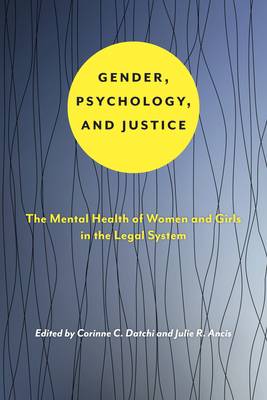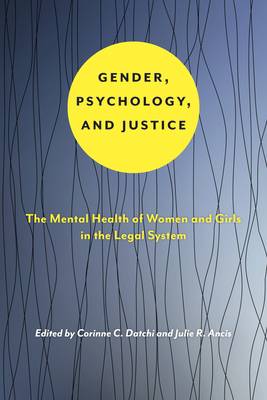
- Afhalen na 1 uur in een winkel met voorraad
- Gratis thuislevering in België vanaf € 30
- Ruim aanbod met 7 miljoen producten
- Afhalen na 1 uur in een winkel met voorraad
- Gratis thuislevering in België vanaf € 30
- Ruim aanbod met 7 miljoen producten
Gender, Psychology, and Justice
The Mental Health of Women and Girls in the Legal System
Omschrijving
Reveals how gender intersects with race, class, and sexual orientation in ways that impact the legal status and well-being of women and girls in the justice system.
Women and girls' contact with the justice system is often influenced by gender-related assumptions and stereotypes. The justice practices of the past 40 years have been largely based on conceptual principles and assumptions--including personal theories about gender--more than scientific evidence about what works to address the specific needs of women and girls in the justice system. Because of this, women and girls have limited access to equitable justice and are increasingly caught up in outdated and harmful practices, including the net of the criminal justice system.
Specificaties
Betrokkenen
- Uitgeverij:
Inhoud
- Aantal bladzijden:
- 352
- Taal:
- Engels
- Reeks:
- Reeksnummer:
- nr. 6
Eigenschappen
- Productcode (EAN):
- 9781479819850
- Verschijningsdatum:
- 18/04/2017
- Uitvoering:
- Hardcover
- Formaat:
- Genaaid
- Afmetingen:
- 152 mm x 229 mm
- Gewicht:
- 616 g

Alleen bij Standaard Boekhandel
Beoordelingen
We publiceren alleen reviews die voldoen aan de voorwaarden voor reviews. Bekijk onze voorwaarden voor reviews.










